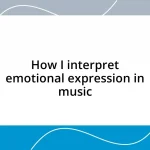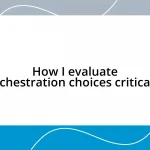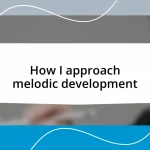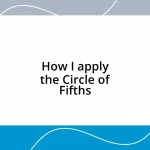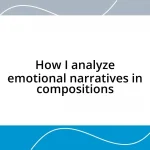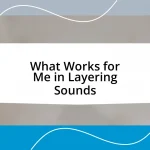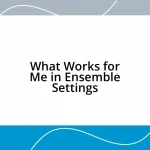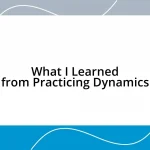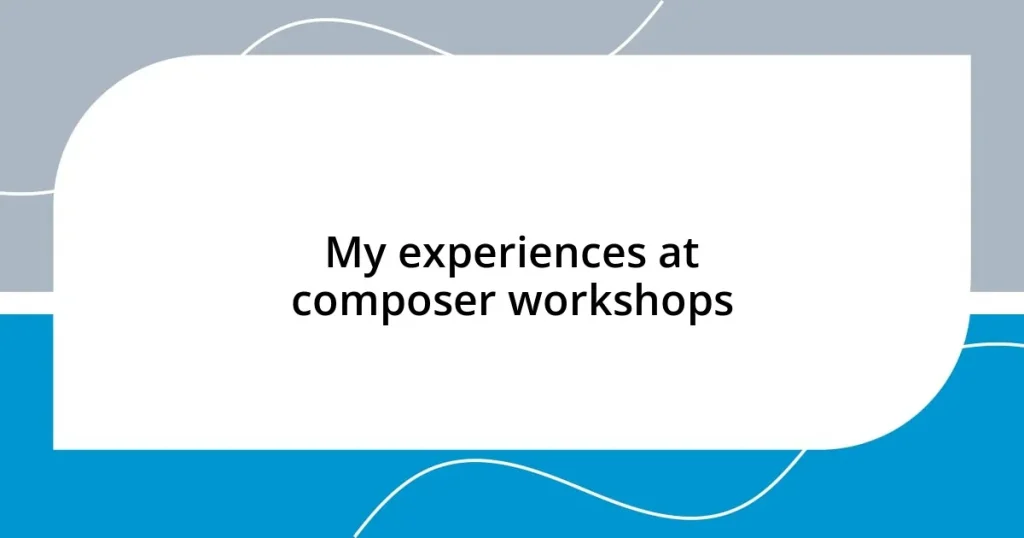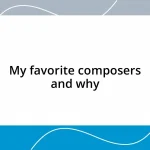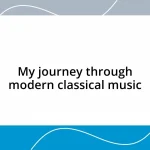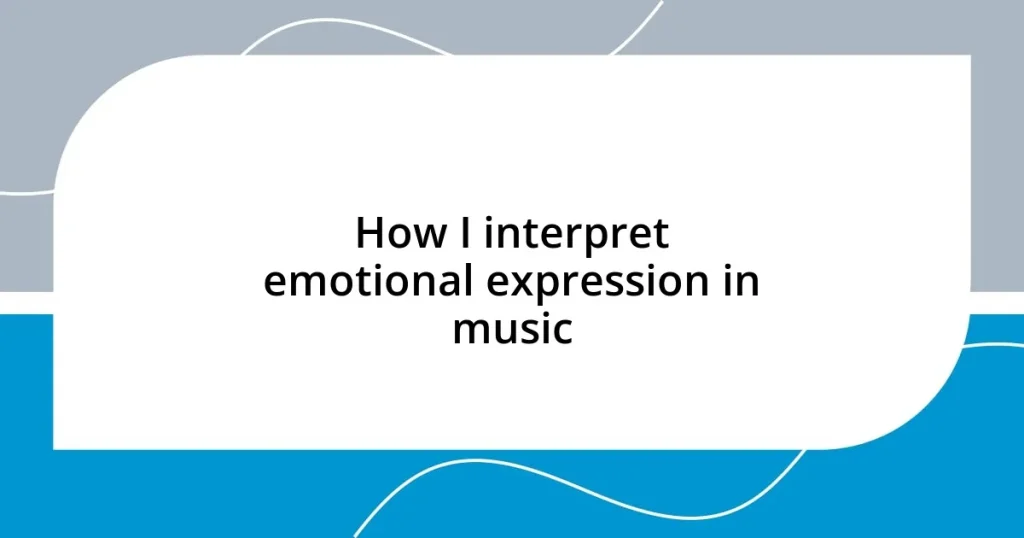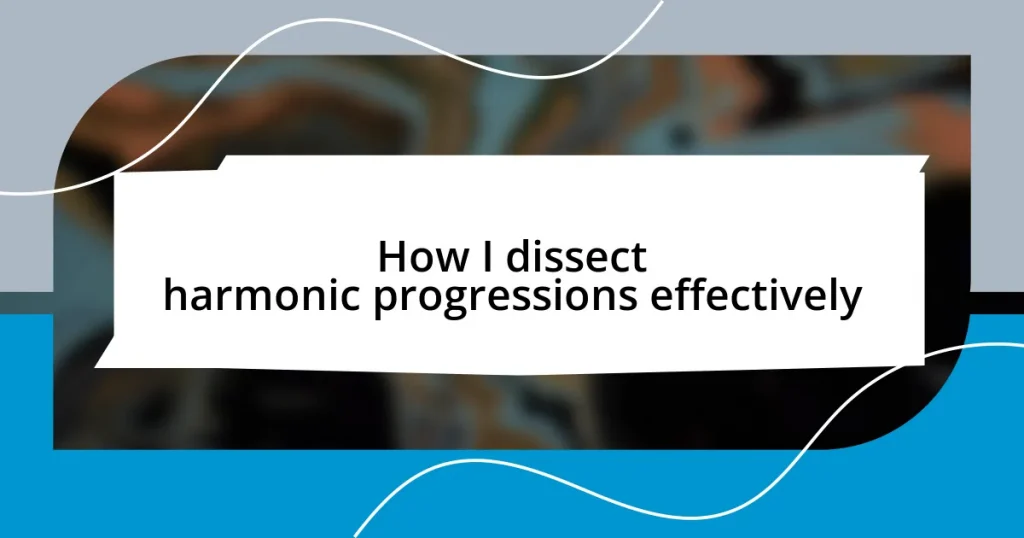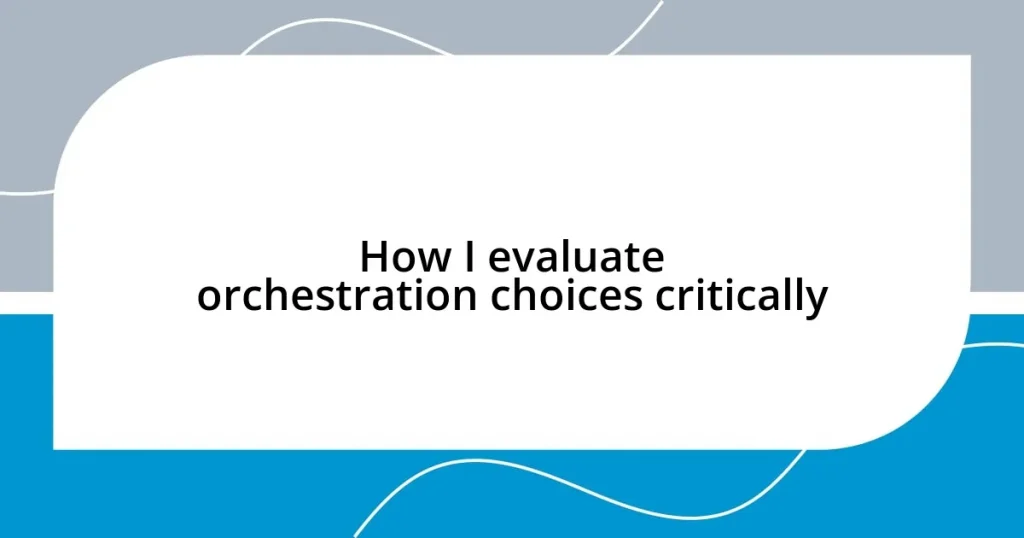Key takeaways:
- Composer workshops foster creativity and collaboration, providing a supportive environment for artistic growth.
- Key benefits include networking opportunities, diverse perspectives, structured feedback, and hands-on experience.
- Different types of workshops, such as orchestration, genre-specific, and collaborative sessions, offer unique learning experiences.
- Implementing lessons from workshops, such as embracing spontaneity and collaboration, can significantly transform one’s compositional approach.
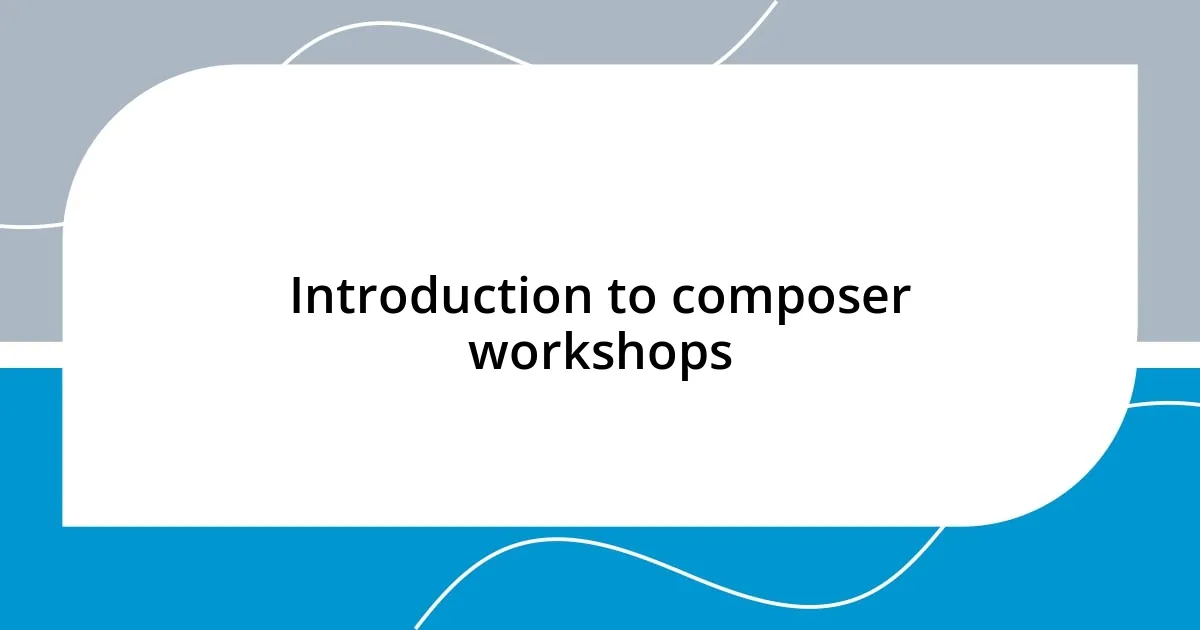
Introduction to composer workshops
Composer workshops are vibrant spaces where creativity meets collaboration. I vividly remember my first experience in such a setting, feeling both excitement and apprehension as I entered a room filled with talented musicians and eager composers. Have you ever felt that rush of inspiration when surrounded by others who share your passion?
These workshops often serve as a melting pot of ideas, where varying backgrounds in composition flourish. I once attended a session where we experimented with unconventional instruments. The sounds we created were nothing short of magical, sparking a whirlwind of creativity I hadn’t anticipated. It made me wonder—how can a simple gathering ignite such profound artistic expression?
In these workshops, feedback is not only given but is celebrated. Each critique that I received felt like a guiding light, offering precious insights that helped me grow as a composer. This nurturing environment encourages risks, prompts innovation, and ultimately fosters a deeper connection with our music. Isn’t it remarkable how collective learning can elevate our individual journeys?
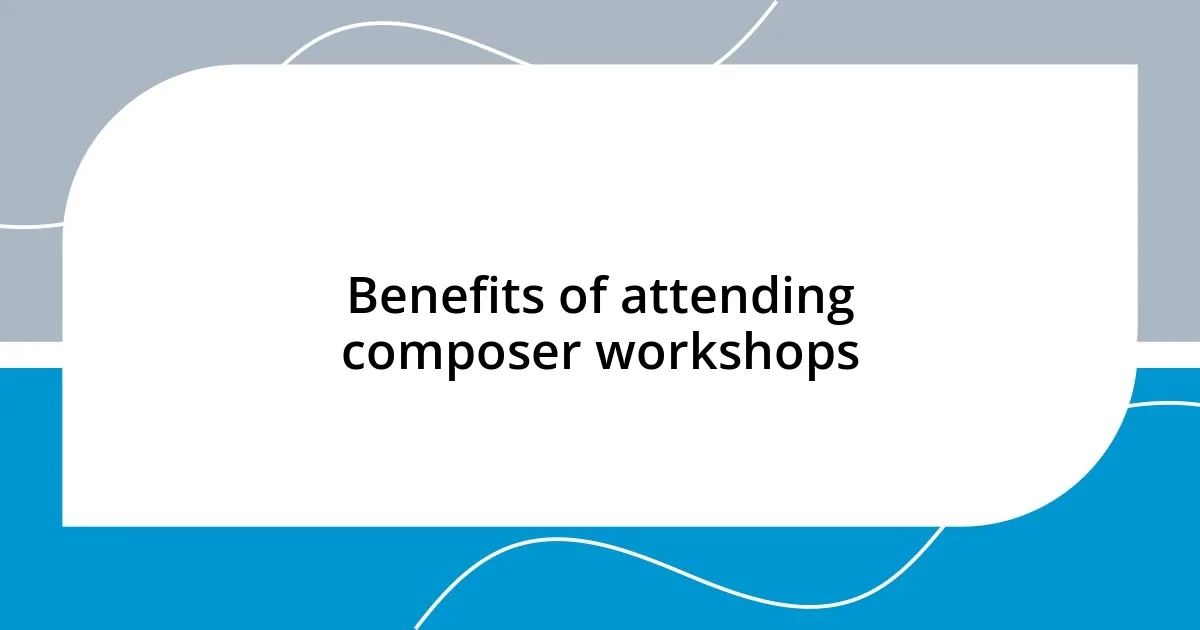
Benefits of attending composer workshops
Attending composer workshops unlocks a treasure trove of opportunities. For instance, I still cherish the day I collaborated on a piece with a musician who specialized in jazz. His distinct take on rhythm pushed me to think outside my usual compositional box, enhancing not just my music but also my confidence in experimenting with new styles. The collective energy is palpable, creating an atmosphere ripe for exploration and innovation.
Here are some key benefits of attending these workshops:
- Networking Opportunities: Connecting with fellow composers, musicians, and mentors can lead to collaborations that might not happen otherwise.
- Diverse Perspectives: Encountering different styles and influences broadens one’s compositional range and ignites fresh ideas.
- Structured Feedback: Receiving constructive criticism from peers and instructors helps refine one’s skills and thicken one’s skin.
- Hands-on Experience: Engaging in real-time composition provides invaluable practical experience that theory alone can’t offer.
- Creative Confidence: Trying out new ideas in a supportive setting boosts your confidence to take risks in your own compositions.
In my experience, these workshops have not only honed my skills but have also enriched my artistic journey with unforgettable moments and friendships that continue to inspire me today.
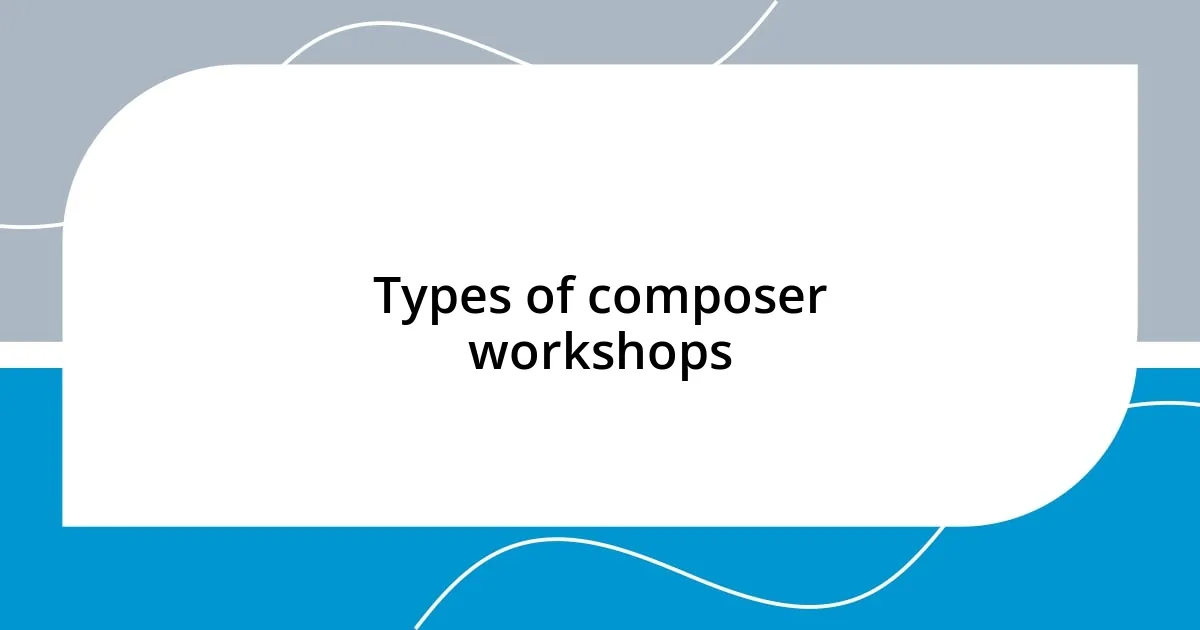
Types of composer workshops
When it comes to composer workshops, there’s quite a variety to choose from, each offering something unique. For instance, I’ve participated in workshops focused specifically on orchestration. The thrill of working with an ensemble to hear my compositions come to life was exhilarating. It’s like seeing your abstract dreams materialize into beautiful soundscapes.
Another type that I found immensely beneficial is the genre-specific workshop. I remember taking part in one dedicated to contemporary classical music. The challenge of blending traditional techniques with modern elements pushed me out of my comfort zone. It was invigorating to explore fresh ideas and see how they could redefine my approach to music.
Lastly, there are collaborative workshops, which I absolutely adore. These sessions typically bring together composers and performers for intense brainstorming and creation. I once collaborated with a visual artist, which opened up a whole new realm of expressing ideas across disciplines. It felt like the music and visuals were intertwined, creating a seamless tapestry of art. Have you ever experienced that kind of synergy? It’s truly magical when various art forms blend beautifully together.
| Type of Workshop | Description |
|---|---|
| Orchestration Workshops | Focus on writing for orchestral ensembles, allowing composers to hear their work performed live. |
| Genre-Specific Workshops | Centered on a particular style, encouraging composers to explore and innovate within that genre. |
| Collaborative Workshops | Bring together composers and other artists to create cross-disciplinary works, fostering creativity through collaboration. |
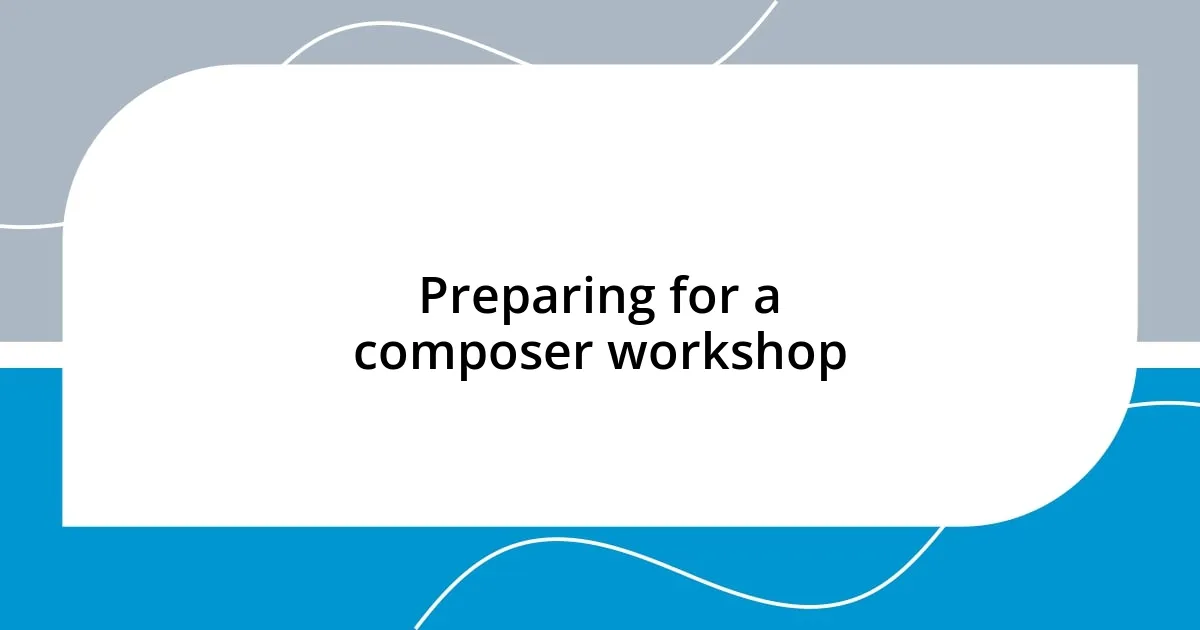
Preparing for a composer workshop
Preparing for a composer workshop can feel both thrilling and daunting. I remember the anticipation I felt as I gathered my materials—the scores I had worked on, some favorite pencils, and, of course, my notebook for jotting down thoughts and feedback. It’s amazing how simple preparation can set the tone for creativity. Are you the type who likes to rehearse ahead of time, or do you thrive on spontaneity? Personally, I found that having my ideas well-organized allowed me to embrace the unexpected moments that often lead to the most rewarding experiences.
A practical tip I often share is to listen to pieces that resonate with the workshop’s focus. Before a recent workshop on contemporary jazz, I spent evenings immersed in works by composers like Maria Schneider. This not only fueled my excitement but also provided me with specific ideas to discuss and explore with others. One of my favorite moments was when I referenced a particular piece during a feedback session, and it sparked an enthusiastic debate amongst participants. How often does that happen, where your choice of music connects you to others on such a deep level?
Lastly, I encourage setting personal goals for what you want to take away from the workshop. During my first orchestration workshop, I aimed to understand particular techniques of building tension through orchestral color. That focus transformed my experience—the deliberate approach helped me absorb feedback more effectively and connect deeper with fellow composers. What might your goal be if you attended this kind of workshop? Whether it’s mastering a new instrument, exploring a technique, or fostering collaboration, having clear objectives can make all the difference in ensuring your time is valuable and enriching.
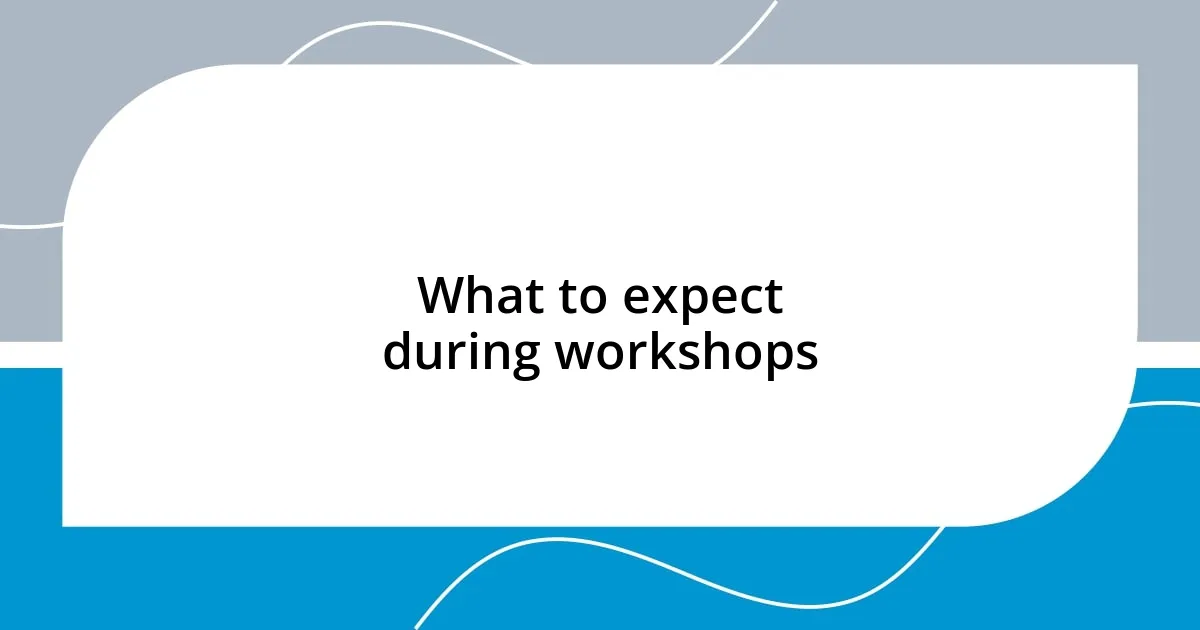
What to expect during workshops
When attending composer workshops, expect a vibrant atmosphere filled with creativity and energy. I recall stepping into my first workshop, and the buzz in the room was palpable. Ideas bounced around like musical notes in the air, and I felt an immediate connection with fellow composers. It’s truly inspiring to be surrounded by so many passionate individuals all discerning their artistic voices.
Don’t be surprised if you encounter moments of intense feedback. I once shared a piece and nervously awaited reactions, only to receive constructive critiques that were both eye-opening and encouraging. It was a reminder that growth often comes from vulnerability. Have you ever experienced that sensation where the feedback you receive not only sharpens your skills but also boosts your confidence? The workshop environment often fosters a supportive yet stimulating critique process, making it a valuable part of the experience.
Lastly, be ready to participate in hands-on activities that push your boundaries. During one workshop, we were tasked with composing a short piece in just thirty minutes. The adrenaline rush was incredible! It challenged me to think on my feet, resulting in an exhilarating blend of spontaneity and creativity. What about you? Would you embrace that kind of challenge? It’s moments like these that often reveal your true potential and spark unexpected ideas.
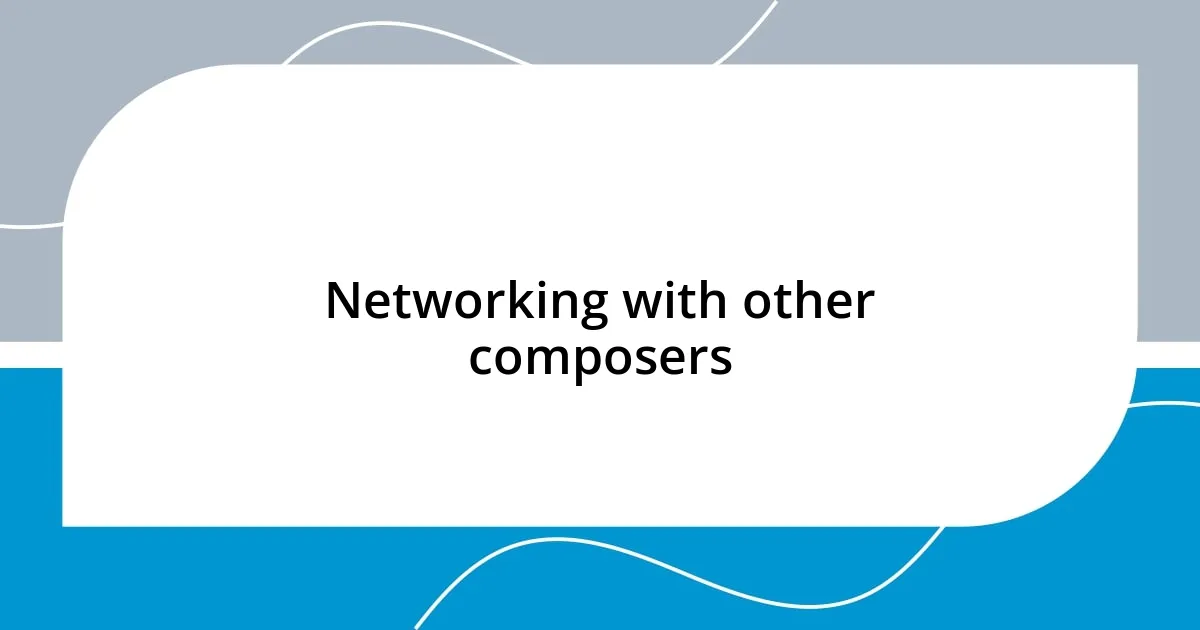
Networking with other composers
Networking with other composers feels like discovering an extended family who share your passion. At one of the workshops I attended, I found myself striking up a conversation with someone whose work was heavily inspired by minimalism, a genre I had always admired but never explored deeply. As we exchanged thoughts, I could feel the excitement building—not just because of the topic, but because it was a chance to cultivate a relationship that could lead to future collaborations.
I remember during break times when everyone would gather, sharing snacks and stories. It was in those relaxed moments that I connected with someone who had faced similar challenges in their composing journey—overcoming self-doubt and seeking authenticity in their work. Wasn’t it fascinating to realize that despite our different styles and backgrounds, our struggles as composers united us? Building such connections really enriched my experience; I came away with more than just contact information—I gained friends and mentors.
Also, consider sharing your personal projects. One afternoon, I casually mentioned a piece I had been developing, and that led to a lively discussion with another composer who offered insightful suggestions. It was a reminder of how we often gain clarity by voicing our ideas. Have you ever felt a shift in your perspective just by discussing your work? Networking with other composers is not just about meeting people; it can truly enhance your artistic path and foster a supportive creative community.
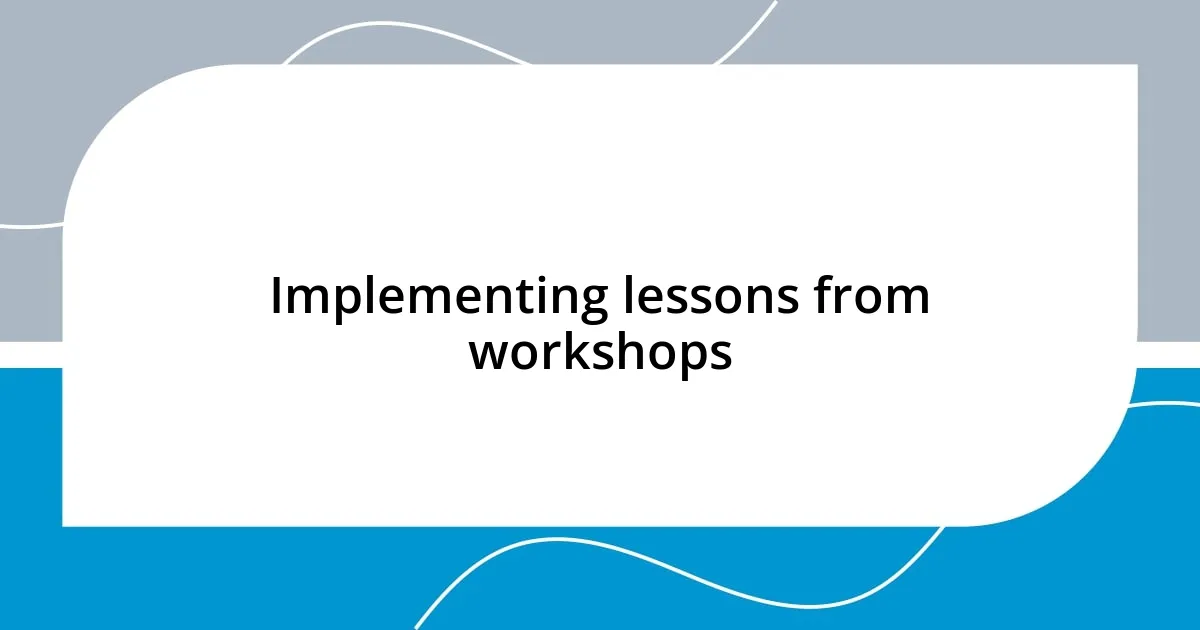
Implementing lessons from workshops
Implementing lessons from workshops has been a transformative journey for me. After one particularly intense session focused on dynamics, I felt an overwhelming urge to revisit a piece I had previously set aside. The revelations about how nuanced changes could create layers of emotion inspired me to rework that composition completely. I think many composers underestimate the power of small adjustments, don’t you? It’s amazing how one lesson can shift your entire creative perspective.
One standout moment in a workshop involved exploring unconventional instrumentation. I was hesitant at first, but when I experimented with using found objects as part of a rhythm section, the resulting sound was electrifying. This experience taught me to embrace spontaneity in my creative process. Have you ever stumbled upon a unique sound that became the backbone of your composition? It’s those unexpected discoveries that can breathe new life into our music.
Each workshop reinforced the value of collaboration, which I never fully appreciated until I engaged directly with peers. During one session, we collectively arranged a piece, blending our styles in the process. The synergy was palpable! I realized then that sharing ideas fosters innovation; it’s like a spark igniting a fire of creativity. How can we continue to learn if we isolate ourselves? Engaging with others not only deepens our understanding but also expands our artistic horizons, shaping our voice in richer ways.

